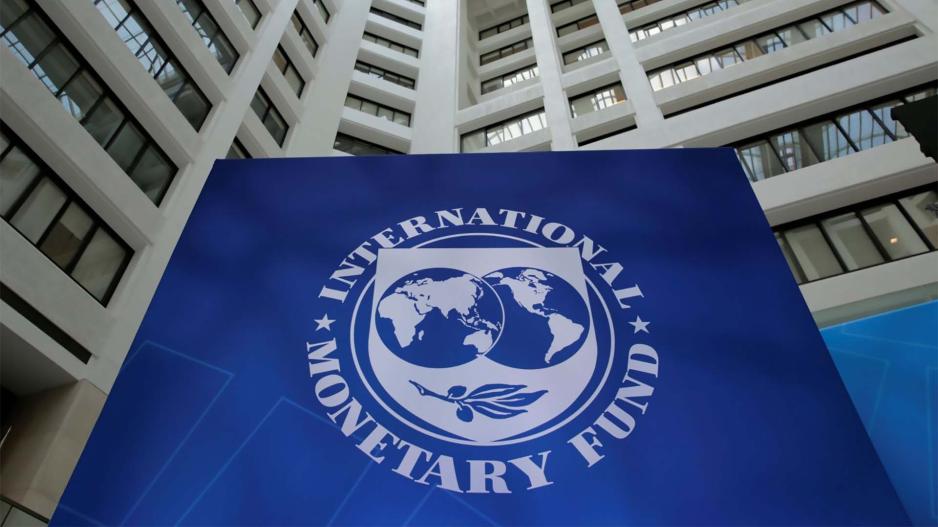IMF Urges Cyprus to Accelerate Structural Reforms
The Fund Also Calls on Cyprus to Strengthen Frameworks for Combating Money Laundering and Terrorism Financing
The International Monetary Fund (IMF) has commended Cyprus for its robust economic recovery and fiscal discipline, advising continued efforts to reduce public debt and address long-term needs.
The Executive Board approved the IMF staff assessment of their visit to Cyprus, emphasizing the importance of maintaining significant primary surpluses and gradually phasing out subsidies. The report also highlighted the need for investments and reforms to sustain growth and tackle challenges such as population aging and climate change.
The IMF agreed that Cyprus's fiscal policy for 2024 is appropriate, stressing the necessity to reduce public debt below 60% of GDP.
According to IMF estimates, Cyprus will experience steady economic growth in the coming years, with real GDP expected to stabilize between 2.5% and 3.1% annually from 2023 to 2027. In 2024, real GDP is anticipated to rise slightly compared to 2023, reaching 2.6%. GDP is projected to grow by 2.8% in 2025, 3.0% in 2026, and 3.1% in 2027.
The IMF notes that Cyprus recovered quickly from the pandemic and has shown resilience to multiple adverse shocks. Growth moderated to 2.5% in 2023 but remained strong, above the Eurozone average, supported by ongoing recovery in tourism, financial services, and expansion in Information and Communication Technologies (ICT) and strong investments.
General inflation has fallen below 2%, driven by declining energy prices and tighter monetary policy, but core inflation remains persistent. Inflation is expected to stabilize around 2.0% by 2027.
Strong fiscal performance continues due to significant revenue growth, contributing to a substantial reduction in public debt. The banking sector has ample capital and liquidity buffers, and despite tight financial conditions, risks appear to have decreased.
Regarding the future economic trajectory, the IMF projects steady growth for Cyprus in 2024, bolstered by increased real incomes, direct foreign investments, and inflows from the EU’s Recovery and Resilience Plan (RRP).

In the medium term, growth is expected to reach 3%, driven by strong investments and structural reforms. However, potential short-term risks, including declines in major tourism markets, regional conflicts, and delays in implementing the RRP, could pose challenges. Medium-term risks from climate change are mitigated by potential upsides from attracting more foreign investments and talent.
The IMF highlights the need to reduce public debt and maintain large primary surpluses until debt levels comfortably fall below 60% of GDP. Recognizing significant long-term spending needs arising from population aging and climate challenges, the Board stresses the importance of preserving fiscal space to address these concerns.
Proposed measures include gradually phasing out electricity subsidies and VAT exemptions, avoiding further automatic wage indexation, prioritizing investments, implementing health sector reforms, and enhancing oversight of semi-governmental organizations.
The resilience of Cyprus's banking sector, with high capitalization and liquidity, is noted. While financial sector risks are considered reduced, the IMF’s Executive Board calls for vigilance in monitoring loan renegotiations and systemic risks from the real estate market. Authorities are encouraged to allow the newly amended foreclosure framework to operate alongside the "Rent vs. Installment" scheme to expedite the resolution of non-performing loans (NPLs).
Additionally, the IMF underscores the necessity of structural reforms to diversify Cyprus's growth model. It calls for further reforms in the judiciary and labor market to streamline the business environment and address skill mismatches. The importance of strong frameworks for combating money laundering and terrorism financing to mitigate economic, reputational, and regulatory risks is also emphasized. Policies promoting domestic savings and business opportunities would help balance the current account while supporting long-term growth.
Regarding Cyprus's climate goals, the IMF emphasizes the need for dynamic implementation of energy infrastructure projects and additional measures to achieve targets. It also supports the planned green tax reform, recommending targeted sectoral policies for faster reduction of greenhouse gas emissions.






